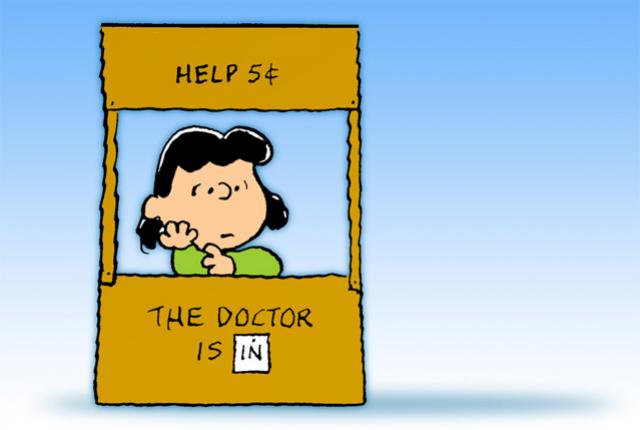A young father goes to the doctor. He has been experiencing some discomfort in his shoulder. His physician recommends that he see a physical therapist. The doctor’s concern is that if the man doesn’t begin to work through the stiffness and pain in his body, his mobility will be even more limited than it is now.
The young father goes to work the next day. Someone at work tells him that the discomfort is no big deal and will work itself out. The colleague went on to tell his friend that he didn’t need to bother with physical therapy. Unfortunately, the young father chose to listen to the friend at work instead of the doctor. Sure enough, his mobility is now even more limited.
A single mother is having car trouble. Her next door neighbor is a mechanic at a local car dealership. He encouraged her to take her car to a mechanic as soon as possible. He was concerned about the condition of her brakes. Meanwhile, a guy at work said that this was probably no big deal and the repair could wait until her payday next week. She listened to her coworker rather than the mechanic. Unfortunately, that weekend her brakes went out totally as she attempted to stop at a traffic light at a busy intersection.
Do we listen to the people who have the knowledge, experience, and wisdom to give the best counsel? Or, do we instead follow someone else’s emotional reaction or their advice based on the anecdotal experience of a second cousin?
Consider the following Scriptures:
The way of a fool is right in his own eyes. Proverbs 12:25
Where there is no guidance, a people falls, but in an abundance of counselors there is safety. Proverbs 11:14
Listen to advice and accept instruction, that you may gain wisdom in the future. Many are in the mind of a man, but it is the purpose of the Lord that will stand. Proverbs 19:20-21
Without counsel plans fail, but with many advisors they succeed. Proverbs 15:22
Some people are quick to give advice. “Listen, I had a toothache like that once and it went away the next day. You just need more grit.” Ok, but remember that you called your dentist and she said to come into the office because the tooth could be infected. Now does it make sense to listen to the dentist or listen to one person who had a toothache two years ago?
Bottom line regarding seeking counsel:
- Get input. However, not all input is of equal value. If your eye is in pain and you call an ophthalmologist, you might do what he says even though your wife’s great-uncle said it would probably be ok by next week.
- Weigh the value of the input you are getting. If several professional school teachers say that your child has a reading problem, it might be worth listening to them and following through on their recommendations. It makes no sense to ignore this advice from experienced teachers and instead follow the advice of a second cousin who says that your child will grow out of it.
- Ask yourself, “Am I doing what is wise? Or, am I just following my emotions?”
